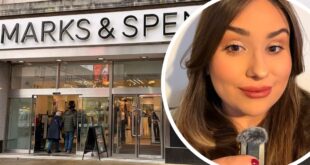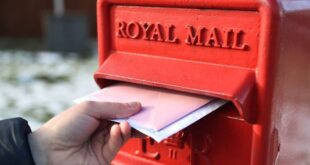Millions of Brits could receive a £600 payment from the Department for Work and Pensions (DWP) to help with their fuel bills. Those eligible for the cost of living support will receive letters from the DWP in the coming months.
The additional payments are made every year and are designed to help older people pay for their heating during the winter months when they heat their homes more often. Both benefits claimants and those who don’t receive benefits can qualify for the money, which is usually paid in November or December.
The money is likely to be a huge lifeline for some with energy bills remaining high despite falling to their lowest levels in years, reports WalesOnline.
READ MORE: DWP: 30 medical conditions which may qualify for extra £100 a week
Ofgem announced on Friday, August 25, that the energy price cap will be £1,923 for the three months beginning from October – the lowest point since October 2021. But this is still significantly higher than bills were before the pandemic.
If you qualify the amount you get depends on your circumstances such as when you were born and who lives in your household. This year you will get extra money if you qualify due to the government adding on an additional cost of living payment for pensioners. Here is everything you need to know about the upcoming winter fuel payment.
How do I know if I qualify for the winter fuel payment?
You can get a winter fuel payment if you were born before September 25, 1957. You usually need to live in the UK but in some circumstances you might be eligible if you live abroad. You will also get it if you live in a care home.
You will not be eligible if you have been in hospital getting free treatment for more than a year, if you need permission to enter the UK and your granted leave says that you cannot claim public funds, or if you were in prison for the whole of the week of September 18 to 24, 2023.
How much do I get for the winter fuel payment?
The amount you get will depend on when you were born and your circumstances during the qualifying week between September 18 and September 24, 2023. This year the payment will include a pensioner cost of living payment of between £150 and £300 due to the cost of living crisis. The below amounts are what you will get including that additional payment.
If you live alone or no one you live with is eligible for the winter fuel payment you will get:
- £500 if you were born between September 25, 1943, and September 24, 1957
- £600 if you were born before September 25, 1943
If you don’t claim any benefits you could get:
- £250 if you and the person you live with were both born between September 25, 1943, and September 24, 1957
- £250 if you were born between September 25, 1943, and September 24, 1957, but the person you live with was born before September 25, 1943
- £350 if you were born before September 25, 1943, but the person you live with was born between September 25, 1943, and September 24, 1957
- £300 if you and the person you live with were both born before September 25, 1943
If you jointly claim benefits with your partner then one of you will get:
- £500 if both of you were born between September 25, 1943, and September 24, 1957
- £600 if one or both of you were born before September 25, 1943
Meanwhile if you receive a benefit that is not part of a joint claim then you will get:
- £500 if you were born between September 25, 1943, and September 24, 1957
- £600 if you were born before September 25, 1943
How will I get the money?
You should get the payment automatically if you are eligible and it is usually sent out in November or December. If you qualify you will get a letter in October or November confirming this.
In certain circumstances, such as if you haven’t got the payment before, you may need to claim it. You can claim by post from September 18, 2023, or by phone from October 4, 2023.
To claim by phone from that date call the winter fuel payment helpline on 0800 731 0160. You can find out more about how to claim here. To get all the latest money-saving news straight to your inbox twice a week sign up here.
Source link



